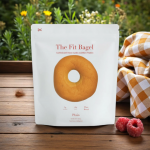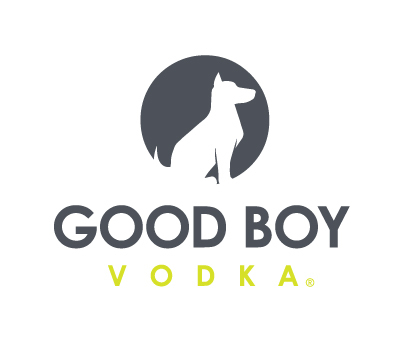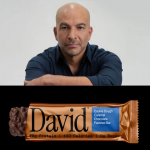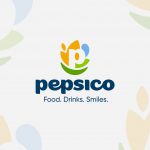NOSH Live 2017 Highlight Reel: Morning Edition
NOSH Live Summer 2017 attendees kicked off Monday with more than a cup of coffee.
The event at the Metropolitan West in New York City was packed with presentations ranging from the keys to growing brands and relationships to the steps for rapid growth and the best branding for good-for-you products. The buzz of networking breaks was actionable advice, stories from market leaders and conversations with industry trailblazers — and that was all before lunch.
Here are a few highlights from the morning sessions at NOSH Live Summer 2017.

James Richardson Focuses on the Importance of Focus
Just like focus is the difference between a good and great photo, it’s also the difference between a good and great emerging food business — at least according to James Richardson, senior vice president of knowledge and innovation at the Hartman Group.
“In photography composition is your foundation,” Richardson told the audience. “In food, product is your foundation. If you do not obsess about your product you’ll have no mental attention to manage the hundreds of other variables needed to win in the competitive marketplace.”
During the session, titled “The Power of Focus for Growing Brands,” Richardson spoke about the importance of finding a focus not only in branding, but also in growth strategy and management. Richardson used Siggi’s yogurt as a case study for having an “obsessive focus,” saying the company was able to see incredible growth because the product not only solved what once was a tradeoff for consumers, but also offers a product that has embraced mainstream food trends.
Richardson added that though focus is rewarded in the market, it also brings with it attention and advice, both solicited and unsolicited. “The word ‘no’ in your journey is a critical enabler of focus,” Richardson said. “If you focus on that word ‘no,’ I guarantee you are going to see above average growth.”
Jason Cohen Talks the Importance of Human Connections in Sales
Jason Cohen, CEO and founder of Halen Brands, believes to be successful in selling your brand, you need to first know how to build meaningful relationships.
During his presentation, “Perfecting Products, Building Teams, Romancing Brands,” Halen spoke of lessons he learned from his mentor.
“The person in front you you only cares about you …. or more importantly that you’ve identified something more important than what you are trying to sell them today,” Cohen said. “You got to get to know the person you are trying to sell.”
By connecting with customers about their families or interests, Cohen said he’s been able to grow brands such as Veggie Straws and SkinnyPop. “It’s taking the sales out of the sales and finding what people like other than what you are doing, then secondarily selling the things that you want,” he said.
Cohen added that brands can also build relationships on trust by bringing more to the table, like opinions or observations on the marketplace that buyers may not be seeing.
“If you become that person that can help them keep their seat at the table, you are providing more value than just yourself and your brand,” Cohen said.
La Colombe’s Kyle O’Brien Uses Acronyms For Success
How did Kyle O’Brien, the current EVP of sales at La Colombe, help scale two businesses in the food and beverage industry in the past decade? Acronyms.
In his presentation “The Rules to Rapid Growth From Chobani to La Colombe,” O’Brien outlined the helpful hints that he’s used to remind himself of the keys to success on growing and scaling a brand. O’Brien said one acronym in particular has always resonated with him because of its familial ties. O’Brien’s father told him that in order to be successful in any aspect of life, he needs to be “a member of the P.I.C. society.”
“It means persistent, insistent and consistent,” he said.

Banza Believes Consumers Want Taste, Not Health Positioning
Banza sees its mission as bringing healthy, legume-based food to all — but it doesn’t want consumers to know that.
The chickpea-based pasta company instead wants consumers to think of its product as accessible in every sense of the word, including affordability, availability and familiarity, according to Brian Rudolph, Banza co-founder.
During his presentation, “Getting to ‘Good’ from ‘Good for You,’” Rudolph said consumer feedback shows the pasta’s nutrition, as well as its likability to traditional pastas in both uses and cooking instructions, resonates with consumers.
“My takeaway here is to learn what resonates with people and make that 75-85 percent of your communication. People are really busy and you have to meet them where they are,” he said. “People don’t want to hear our mission, but it’s what we care about.”

Fresca’s Liz Myslik Tells ‘Tale of Two Brands’
It was storytime when Fresca Brands CEO Liz Myslik hit the main stage. Myslik explored what she deemed to be universal truths of the industry through a fable in her presentation “Big Isn’t All Bad: What Small Brands Can Learn from the Big Food Companies.”
“Whether food innovators of 150 years ago or today, we found universal truths of whether brands succeeds and is built to last or whether it comes and goes,” Myslik told the audience.
During the storytime, Myslik reminded entrepreneurs how margins matter, even in the early days. “We value a resource more when it’s scarce,” she said. “When we have more money, we spend more money, and we aren’t as careful or as diligent in how we spend it.”
She added that because young brands have an abundance of funding now more than ever, it is easy to make costly mistakes without a sticking to a strict budget.
Michael Ruhlman Talks New Book, the Role of Grocers
Award-winning author Michael Ruhlman has always found food to be important. But he took his interest beyond the culture of agriculture, cooking and restaurants at NOSH Live.
Ruhlman took the stage to talk about his upcoming book, Grocery: The Buying and Selling of Food in America. He told the audience that he became curious about grocery after realizing that he was preaching to his readers about the importance of cooking their own food, he ultimately did not know where that food was coming from.
Ruhlman told the crowd that he thinks grocers are an “unrecognized ally for the up-and-coming product,” and that they’re a great avenue for small brands, especially if they want to be noticed by larger CPGs. Though the marketplace is competitive, Ruhlman said he has faith that “good products will sell and there will always be a market for them.”

Andrew Whitman: Brand Platformation Too Early is ‘Death of Your Business’
Platforming a business can lead to exponential value, but it can also lead to heartbreak.
Andrew Whitman, managing partner of 2X Consumer Products Growth Partners, explained to attendees that though platformation can occur across areas like packaging, ingredients, technology, and distribution, there are still two keys to making it successful: working to supply chain strengths and not spreading too far across the store. One example: flaxseed milk company Good Karma.
“They were able to say Good karma isn’t just our name, it’s the inspiration for everything we do.” he said. Whitman added that it was the messaging and branding that allowed for the company’s portfolio expansion into yogurts and increased its appeal to investors, attracting a partnership with Dean Foods.
















